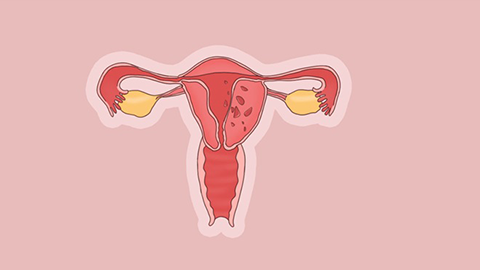What causes bleeding during intercourse in patients with adenomyosis?
Adenomyosis generally refers to adenomyosis of the uterus, a common gynecological condition. Vaginal bleeding after intercourse in patients with adenomyosis may be caused by vigorous sexual activity, hormonal fluctuations around menstruation, cervicitis, endometritis, or cervical polyps. This can be improved by adjusting intercourse practices, monitoring symptoms, and medical treatment. If bleeding occurs frequently or is heavy, prompt medical attention is necessary.
1. Vigorous sexual activity: Rough movements or excessive force during intercourse can irritate affected tissues involved by adenomyosis, leading to local mucosal damage and minor bleeding. It is recommended to control the intensity and range of motion during intercourse to avoid overstimulation, and to refrain from intercourse during episodes of bleeding.
2. Hormonal fluctuations around menstruation: Hormonal changes before or after menstruation can cause uterine muscle congestion and fragility, making light bleeding more likely when stimulated during intercourse, often accompanied by mild abdominal pain. It is advisable to avoid intercourse within three days before and after menstruation and to monitor bleeding patterns; no specific medication is usually required.

3. Cervicitis: Inflammation of the cervix caused by bacterial or viral infection leads to congestion and swelling of the cervical mucosa, which can bleed easily during intercourse due to friction, often accompanied by increased vaginal discharge and odor. Symptoms can be managed under medical guidance using medications such as Baofukang suppositories, cefixime dispersible tablets, or metronidazole suppositories.
4. Endometritis: Infection-induced inflammation of the endometrium causes the lining to become congested and fragile. Stimulation during intercourse may trigger uterine contractions and result in bleeding, often accompanied by dull lower abdominal pain and abnormal vaginal discharge. Under medical supervision, medications such as levofloxacin capsules, Gynecological Qianjin tablets, or amoxicillin-clavulanate potassium tablets may be used to relieve symptoms.
5. Cervical polyps: Benign polyps formed by excessive growth of cervical mucosa are fragile and prone to bleeding upon contact during intercourse, typically resulting in small amounts of bright red blood. Follow medical advice to use medications such as Yunnan Baiyao capsules, cefdinir dispersible tablets, or metronidazole tablets to manage symptoms.
Maintain good external genital hygiene, change underwear regularly, clean before and after intercourse, eat a light diet avoiding spicy and irritating foods, maintain regular sleep patterns to avoid fatigue, exercise moderately to strengthen the body, and pay close attention to any bleeding and bodily discomfort.




